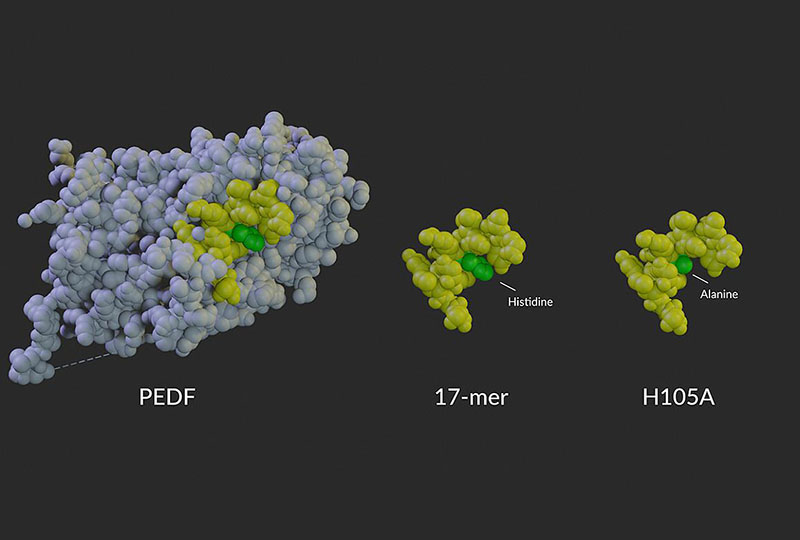IRP researchers develop eye drops that slow vision loss in animals
Treatment shows potential to slow the progression of human degenerative eye diseases, including retinitis pigmentosa
Researchers at the National Institutes of Health (NIH) have developed eye drops that extend vision in animal models of a group of inherited diseases that lead to progressive vision loss in humans, known as retinitis pigmentosa. The eye drops contain a small fragment derived from a protein made by the body and found in the eye, known as pigment epithelium-derived factor (PEDF). PEDF helps preserve cells in the eye’s retina. A report on the study is published in Communications Medicine.
“While not a cure, this study shows that PEDF-based eye drops can slow progression of a variety of degenerative retinal diseases in animals, including various types of retinitis pigmentosa and dry age-related macular degeneration (AMD),” said Patricia Becerra, Ph.D., chief of NIH’s Section on Protein Structure and Function at the National Eye Institute and senior author of the study. “Given these results, we’re excited to begin trials of these eye drops in people.”
This page was last updated on Friday, March 21, 2025
